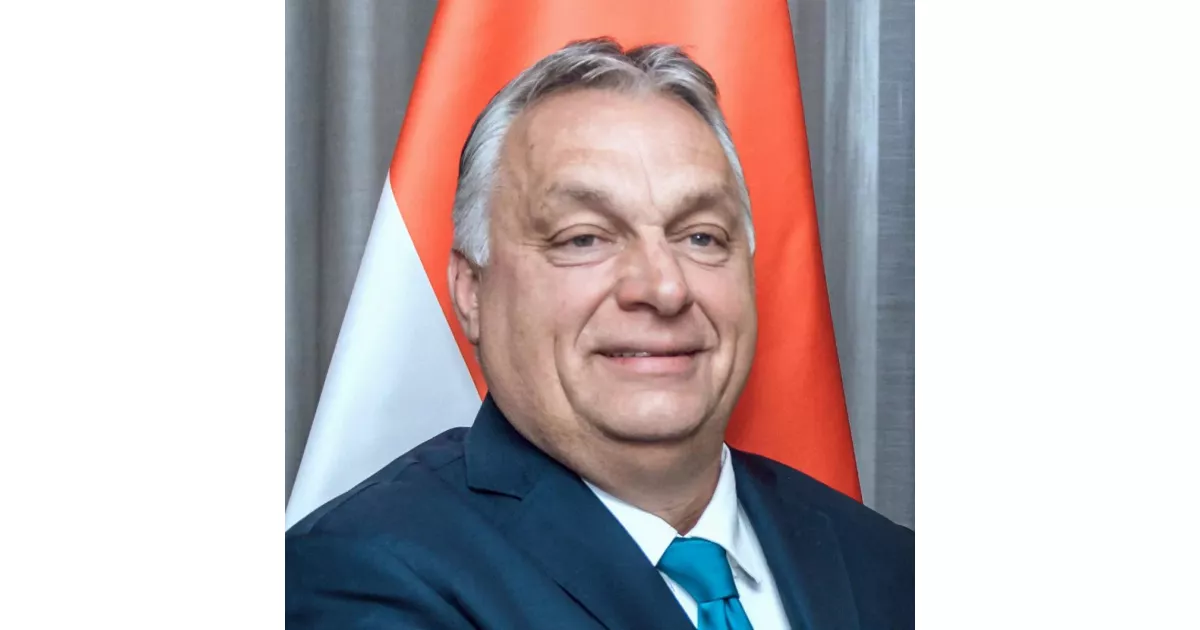How Viktor Orbán built a successful career. Explore key moments that defined the journey.
Viktor Orbán is a prominent Hungarian politician and lawyer, currently serving as the Prime Minister of Hungary since 2010, a position he also held from 1998 to 2002. He has been the leader of the Fidesz party since 2003, and before that from 1993 to 2000. Orbán secured re-election as prime minister in 2014, 2018, and 2022, solidifying his long-standing influence in Hungarian politics. In November 2020, he became Hungary's longest-serving prime minister.
1956: Planned Demonstrations on Anniversary of 1956 Revolution
On 1 November, Orbán and his party announced plans to stage demonstrations across Hungary on the anniversary of the Soviet suppression of the 1956 Revolution. These events served as a memorial and protest, but the demonstrations were small and concluded by year's end.
March 1988: Founding of Fidesz
On March 1988, Viktor Orbán co-founded the Alliance of Young Democrats (Fidesz) with other students and activists. It was conceived as a challenge to the Hungarian Young Communist League.
April 1988: Part-time employment for the Soros Foundation
Since April 1988, Viktor Orbán was employed part-time by the Soros Foundation.
June 1989: Speech at Heroes' Square
On June 1989, Viktor Orbán gave a speech in Heroes' Square, Budapest, on the occasion of the reburial of Imre Nagy and other national martyrs of the 1956 Hungarian Revolution. He demanded free elections and the withdrawal of Soviet troops.
September 1989: Research fellowship at Pembroke College, Oxford
In September 1989, Viktor Orbán began a research fellowship at Pembroke College, Oxford, funded by the Soros Foundation. He worked on the concept of civil society in European political thought.
October 1989: Fidesz Becomes a Political Party
In October 1989, Fidesz, represented by Viktor Orbán, officially became a political party.
January 1990: Returns to Hungary
In January 1990, Viktor Orbán abandoned his project at Oxford and returned to Hungary with his family to run for a seat in Hungary's first post-communist parliament.
April 1990: Elected Member of Parliament
In April 1990, Viktor Orbán was elected Member of Parliament from Pest County and secured the first spot on the Fidesz candidate list.
September 1992: Elected Vice Chairman of the Liberal International
In September 1992, Viktor Orbán was elected vice chairman of the Liberal International.
April 1993: Orbán Becomes President of Fidesz
On April 18, 1993, Viktor Orbán became the first president of Fidesz. Under his leadership, Fidesz transformed from a radical liberal student organization to a center-right people's party.
May 1993: Leader of Fidesz's parliamentary group
Viktor Orbán served as leader of the Fidesz's parliamentary group until May 1993.
1994: Parliamentary Election
During the 1994 parliamentary election, Fidesz barely reached the 5% threshold. Viktor Orbán became MP from his party's Fejér County Regional List.
1995: Fidesz adopts Hungarian Civic Party name
In 1995, under Viktor Orbán's presidency, Fidesz adopted "Hungarian Civic Party" (Magyar Polgári Párt) to its shortened name.
April 1996: Chairman of the Hungarian National Committee of the New Atlantic Initiative (NAI)
In April 1996, Viktor Orbán was appointed chairman of the Hungarian National Committee of the New Atlantic Initiative (NAI).
1998: Chairman of the Committee on European Integration Affairs
Between 1994 and 1998, Viktor Orbán was chairman of the Committee on European Integration Affairs.
1998: Coalition Formed and Election Won
In 1998, Viktor Orbán formed a coalition with the Hungarian Democratic Forum (MDF) and the Independent Smallholders' Party (FKGP). The coalition won the 1998 parliamentary elections, and Orbán became prime minister.
March 1999: Hungary Joins NATO
In March 1999, Hungary joined NATO along with the Czech Republic and Poland, after Russian objections were overruled. Hungary's membership in NATO demanded its involvement in the Kosovo crisis and modernization of its army. However, NATO membership also dealt a blow to the economy due to a trade embargo imposed on Yugoslavia.
November 2000: Fidesz Leaves Liberal International
In November 2000, Fidesz, under Viktor Orbán, left the Liberal International and joined the European People's Party (EPP).
September 2001: Gallup Poll Results
According to a September 2001 poll by the Gallup organization, a joint Fidesz – Hungarian Democratic Forum party list would have support from up to 33% of the voters, with the Socialists drawing 28% and other opposition parties 3% each.
December 2001: Agreement Between Orbán and Romanian Prime Minister
In December 2001, Romania acquiesced to Hungary's "status law" after amendments were made following an agreement between Orbán and Romanian Prime Minister Adrian Năstase.
October 2002: Elected Vice-President of EPP
At the EPP's Congress in Estoril in October 2002, Viktor Orbán was elected vice-president, an office he held until 2012.
2002: Acceptance of Status Law by Slovakia
In 2002, Slovakia accepted Hungary's "status law" after further concessions made by the new government following the elections.
2002: Stagnated Public Support Before General Elections
In 2002, as general elections approached, public support for political parties generally stagnated. Opinion polls indicated that Fidesz and the main opposition Hungarian Socialist Party (MSZP) were running neck to neck, each attracting about 26% of the electorate.
2003: EU Accession Clarification
In 2003, Orbán clarified his stance on EU accession, stating it would not be a tragedy if Hungary couldn't join the EU that year, while also affirming his government's efforts to integrate into the EU to boost the economy.
2004: Fidesz Victory in European Parliament Election
In the 2004 European Parliament election, Fidesz heavily defeated the ruling Hungarian Socialist Party. Fidesz gained 47.4% of the vote and 12 of Hungary's 24 seats.
October 2006: Fidesz Wins Municipal Elections
In October 2006, Fidesz won the municipal elections, gaining 15 of 23 mayoralties in Hungary's largest cities and majorities in 18 of 20 regional assemblies, counterbalancing the MSZP-led government's power.
October 2006: Referendum Procedure Started
On 23 October 2006, Orbán initiated the referendum procedure by announcing they would hand in seven questions to the National Electorate Office regarding government reforms.
2006: Parliamentary Election Failure
In the 2006 parliamentary election, Orbán, as the Fidesz candidate, failed to gain a majority, initially putting his political future as the leader of Fidesz in question.
May 2007: Re-election as President of Fidesz
In May 2007, after fighting with the Socialist-Liberal coalition, Orbán's position resolidified, and he was elected president of Fidesz for another term.
December 2007: Approval of Referendum Questions
On 17 December 2007, three of the seven questions submitted by Orbán were officially approved by the National Electorate Office, focusing on abolishing copayments, daily fees, and college tuition fees.
January 2008: Call for Referendum
On 24 January 2008, a referendum was called based on the three approved questions, focusing on abolishing copayments, daily fees, and college tuition fees.
March 2008: National Referendum on Government Reforms
In March 2008, a national referendum took place on revoking government reforms, including doctor fees, medical fees, and tuition fees, initiated by Fidesz against the ruling MSZP. The referendum passed, marking a significant victory for Fidesz.
2009: FIFA Puskás Award Creation
In 2009, then FIFA President Sepp Blatter visited the Puskás Academy and, together with Orbán and Ferenc Puskás's widow, announced the creation of the new FIFA Puskás Award.
2009: Fidesz Wins European Parliament Election by Large Margin
In the 2009 European Parliament election, Fidesz won by a large margin, garnering 56.36% of votes and 14 of Hungary's 22 seats.
2010: Election victory in 2010
In April 2014, it was noted that Fidesz's victory in the parliamentary election was less than in the 2010 elections.
2010: Parliamentary Election Victory
In the 2010 parliamentary elections, Orbán's party won 52.7% of the popular vote but received a 68% majority of parliamentary seats due to the electoral system.
2011: Drafting of New Constitution
In 2011, Orbán's government drafted a new constitution behind closed doors, debated it briefly, and passed it on a party line. He amended the constitution twelve times in his first year in office.
January 2012: New Constitution Enters into Force
On 1 January 2012, the new constitution drafted by Orbán's government entered into force, replacing the Hungarian Constitution of 1949.
2012: Implementation of Flat Tax
In 2012, Orbán's government implemented a flat tax on personal income set at 16%.
2012: Interest in Western Prime Contractors
Since 2012 Westinghouse and Areva, two Western prime contractors, had been lured by the Hungarian civil service but eventually had been frozen out of competition by the Orbán government, who chose to sole-source the deal in January 2014.
2013: Establishment of the Danube Institute
In 2013, the Danube Institute was established in support of Orbán and his ideas. It is funded by the Batthyány Foundation, which is entirely funded by the Hungarian government.
January 2014: Agreement on Paks II Nuclear Power Plant
On 14 January 2014, Orbán signed an agreement with Vladimir Putin in Moscow for the Paks II nuclear power plant (NPP) to be developed by Rosatom, with Hungary financing it through a loan from Russia.
April 2014: Fidesz Wins Parliamentary Election
After the April 2014 parliamentary election, Fidesz won a majority, securing 133 of the 199 seats in the National Assembly. The party received 44.5% of the national vote, less than in 2010.
July 2014: Articulation of Illiberalism Ideology
In July 2014, at Băile Tușnad in Romania, Orbán publicly articulated an ideology of illiberalism, describing the Western 2008 financial crisis as a paradigm shift and outlining his mission to create a competitive Hungarian state.
November 2014: Proposed Internet Tax and Protests
In November 2014, Orbán proposed a controversial "internet tax" amid accusations of corruption, leading to numerous protests against his government, including one in Budapest.
2014: Tusnádfürdő Speech
In a widely cited 2014 public address at Băile Tușnad (Tusnádfürdő speech), Orbán repudiated the classical liberal theory of the state, arguing for the use of the state to organize and invigorate the national community, promoting national self-sufficiency, sovereignty, familialism, full employment, and preservation of cultural heritage.
September 2015: Parliament Votes on Points Related to Archipelago Surveillance
In September 2015, all but one point related to archipelago surveillance were voted through by the Parliament (the surveillance of the archipelago was left to the Greek military).
2015: Erection of Hungary–Serbia Barrier
During the 2015 European migrant crisis, Orbán ordered the erection of the Hungary–Serbia barrier to block entry of illegal immigrants and register migrants arriving from Serbia.
2015: Criticism of EU Immigration Policy
In 2015, Orbán wrote in the Frankfurter Allgemeine Zeitung that "Europe's response is madness" and criticized the European Union's immigration policy. He also demanded an official EU list of "safe countries" for migrant returns.
2015: Orbán's Migration Stance Gains Traction
In 2015, The New York Times noted that Orbán's stance on migration was gaining mainstream acceptance in European politics. György Konrád, a critic of Orbán, admitted that Orbán was correct and Merkel was wrong concerning the management of the migrant crisis.
April 2018: Fidesz-KDNP Alliance Victory in Parliamentary Election
In the April 2018 Hungarian parliamentary election, the Fidesz–KDNP alliance was victorious and preserved its two-thirds majority, with Orbán remaining prime minister. The election outcome was seen as a victory for right-wing populism in Europe.
2018: Speech on Diversity and National Culture
In a 2018 speech, Orbán stated, "We must state that we do not want to be diverse and do not want to be mixed: we do not want our own colour, traditions and national culture to be mixed with those of others. We do not want this. We do not want that at all. We do not want to be a diverse country."
2019: Increased Immigration of Foreign Workers
Despite anti-immigration rhetoric, Hungary increased the immigration of foreign workers into the country as of 2019 to address a labor shortage.
February 2020: Interview at National Conservatism Conference
In February 2020, Orbán was interviewed by Christopher DeMuth at the National Conservatism Conference in Rome.
March 2020: Parliament Passes Legislation Creating State of Emergency
On 30 March 2020, the Hungarian parliament voted in favor of passing legislation that would create a state of emergency without a time limit and grant the prime minister the ability to rule by decree.
May 2020: European Court of Justice Ruling Against Migrant Transit Zones
In May 2020, the European Court of Justice ruled against Hungary's policy of migrant transit zones, which Orbán subsequently abolished while also tightening the country's asylum rules.
June 2020: End of State of Emergency and New Law on Medical States of Emergency
On 16 June 2020, the Hungarian parliament passed a bill that ended the state of emergency effective 19 June. On the same day, they passed a new law allowing the government to declare "medical" states of emergencies by decree without parliamentary approval.
July 2020: Comments on Linking EU Funds to Rule-of-Law Criteria
In July 2020, Orbán expressed that he still expects arguments over linking the disbursement of funds of the European Union to rule-of-law criteria but remarked in a state radio interview that they "didn't win the war, we (they) won an important battle".
August 2020: Remarks on Christian Roots and Western Europe
In August 2020, Orbán, speaking at an event commemorating the Treaty of Trianon, said Central European nations should come together to preserve their Christian roots as western Europe experiments with same-sex families, immigration and atheism.
2020: The Danube Institute started hosting fellows
In 2020, the Danube Institute began hosting fellows.
October 2021: Blaming EU Green Deal for Energy Price Surge
In October 2021, Orbán blamed a record-breaking surge in energy prices on the European Commission's Green Deal plans, amidst unfavorable conditions including soaring demand and diminished supply of natural gas.
2021: Transfer of Universities to Foundations Led by Allies
In 2021, the parliament transferred control of 11 state universities to foundations led by allies of Orbán. The Mathias Corvinus Collegium received significant government funds and assets.
2021: Comments on Integrating Bosnia
In a 2021 speech, Orbán said, "The challenge with Bosnia is how to integrate a country with 2 million Muslims." This statement was characterized as "xenophobic and racist" by Bosnian leaders.
April 2022: Fidesz Wins Majority in Parliamentary Election
In April 2022, Fidesz secured a majority in the Hungarian parliamentary election, winning 135 of the 199 seats. Viktor Orbán declared victory, noting the magnitude of the win could be seen from the moon and Brussels, while opposition leader Péter Márki-Zay conceded defeat.
October 2024: Addressed the European Parliament
In October 2024, Viktor Orbán, as Premier of Hungary, addressed the European Parliament. He faced criticism from Ursula von der Leyen and MEP Péter Magyar, among others, regarding support for Ukraine, Hungary's economy, government corruption and declining living standards.
Mentioned in this timeline

Donald John Trump is an American politician media personality and...

Vladimir Vladimirovich Putin is a Russian politician and former intelligence...
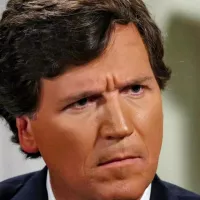
Tucker Carlson is an American conservative political commentator known for...
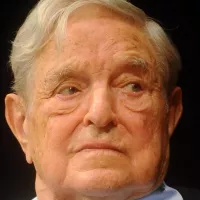
George Soros is a Hungarian-American investor and philanthropist with a...
Ukraine is a country in Eastern Europe the second-largest on...

Martial law is the imposition of military rule in place...
Trending

30 minutes ago Deandre Ayton Detained in Bahamas Airport for Marijuana Possession, Later Released.
30 minutes ago iPhone 18: eSIM Expansion Expected in 2026; Key Feature Loss for Europe?

2 hours ago Kristi Yamaguchi and the Blade Angels aim to end US figure skating drought.
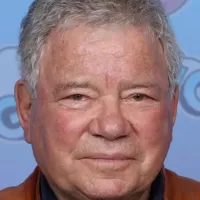
2 hours ago Shatner reflects on Judy Garland's fragility and his disappointment meeting her.

2 hours ago Jasmine Crockett and James Talarico compete in Texas Democratic Senate primary.
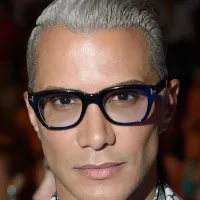
3 hours ago Jay Manuel clarifies Tyra Banks friendship status, reflects on 'America's Next Top Model' fall out.
Popular

Jesse Jackson is an American civil rights activist politician and...
Randall Adam Fine is an American politician a Republican who...

Pam Bondi is an American attorney lobbyist and politician currently...

Barack Obama the th U S President - was the...

Kid Rock born Robert James Ritchie is an American musician...
The Winter Olympic Games a major international multi-sport event held...
